Why Does My Dog Check On Me When I’m Sleeping? [Surprising]
Dogs are known for their loyalty and affection towards their owners. They are often called “man’s best friend” for a reason. One of the ways dogs show their love is by checking on their owners when they are sleeping. But why do they do this?
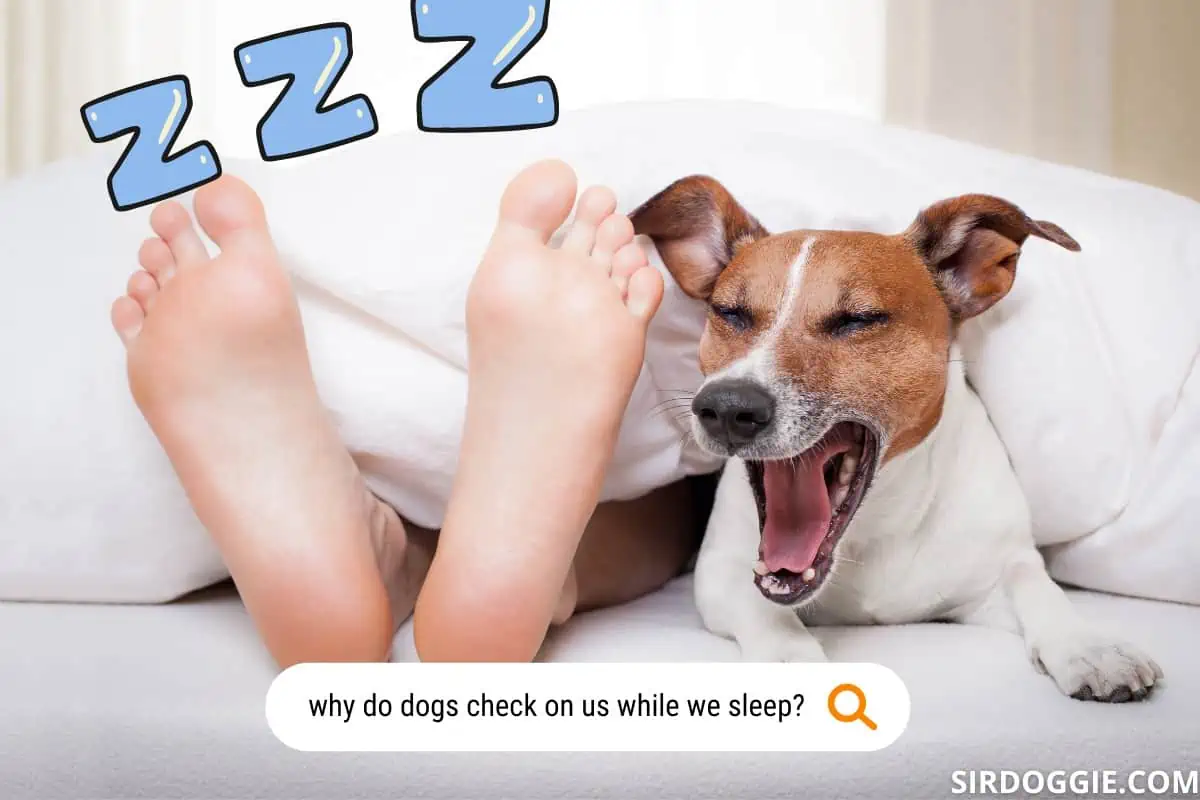
Many dog owners have wondered about this behavior, and there are several reasons why dogs check on their owners while they sleep. Some of the reasons include separation anxiety, boredom, hunger, or simply wanting attention.
In some cases, it may also be due to a different sleep schedule or discomfort with their own sleeping arrangements. Understanding why dogs do this can help owners better care for their furry friends.
Behind Your Dog’s Behavior
Dogs are known to be affectionate creatures who love their owners unconditionally. However, their behavior can sometimes be puzzling, especially when they check on their owners while they are sleeping. Understanding the science behind their behavior can help you better understand your furry friend.
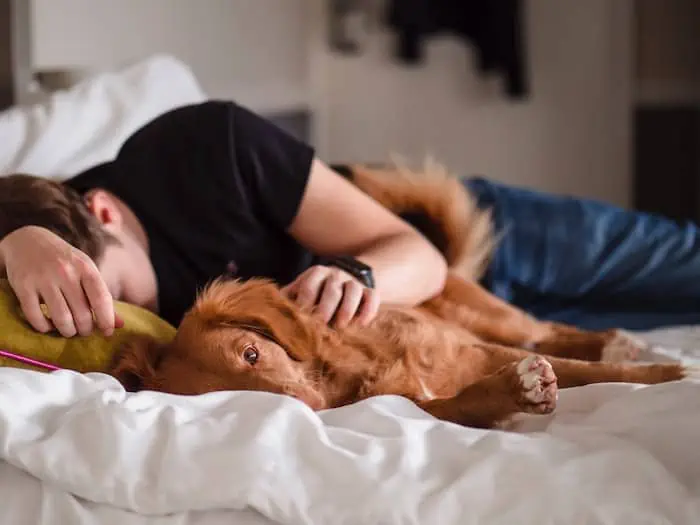
Understanding Pack Mentality
Dogs are social animals that thrive in packs. In the wild, they rely on their pack for survival, and their pack leader is responsible for keeping them safe. Your dog sees you as the pack leader, and it is their instinct to protect you. When your dog checks on you while you are sleeping, they are simply doing their duty as a member of the pack.
This behavior is also why dogs are known to follow their owners around the house. They want to be close to their pack leader and ensure their safety. If your dog is constantly following you around, it is a sign that they see you as their pack leader and want to be near you at all times.
The Role of Separation Anxiety
Separation anxiety is a common problem among dogs. It occurs when a dog becomes anxious or stressed when left alone. This anxiety can manifest in different ways, such as destructive behavior or excessive barking.
When your dog checks on you while you are sleeping, it could be a sign of separation anxiety. They may be checking to make sure you are still there and haven’t left them alone. If your dog exhibits signs of separation anxiety, it is important to address the issue through training and behavior modification.
Training your dog to be alone for short periods of time can help alleviate their anxiety. You can also provide them with toys or treats to keep them occupied while you are away. It is important to be patient and consistent with your training, as it may take some time for your dog to adjust.
Overall, understanding the science behind your dog’s behavior can help you build a stronger bond with your furry friend. Whether they are checking on you out of affection or anxiety, it is important to show them love and attention to help them feel secure.
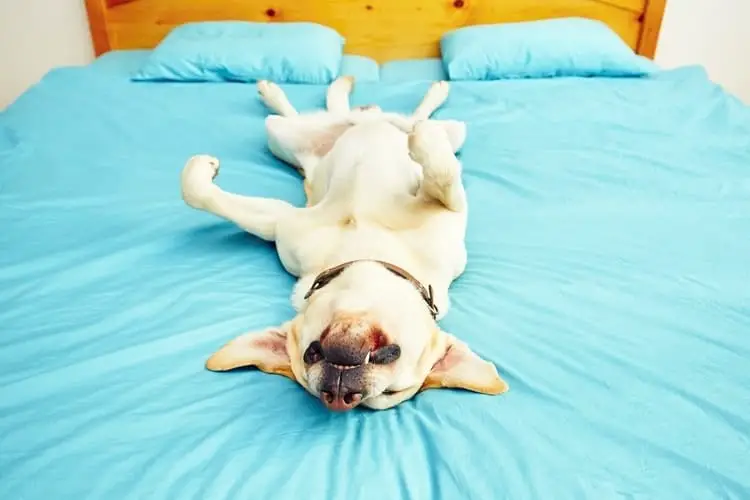
Why Does My Dog Check on Me When I’m Sleeping?
Dogs are known to be loyal and affectionate creatures, and it’s not uncommon for them to check on their owners while they’re sleeping. There are several reasons why dogs do this, and in this section, we’ll explore some of the most common ones.
The Need for Comfort and Security
Dogs are pack animals and thrive on companionship. When their owners are sleeping, dogs may feel a need to check on them to ensure they’re still there and everything is okay. This behavior is especially common in puppies who may feel insecure and need the reassurance of their owner’s presence.
Additionally, dogs may check on their owners to find a comfortable spot to sleep. If their owner is sleeping in a bed, dogs may want to join them for the warmth and security it provides.
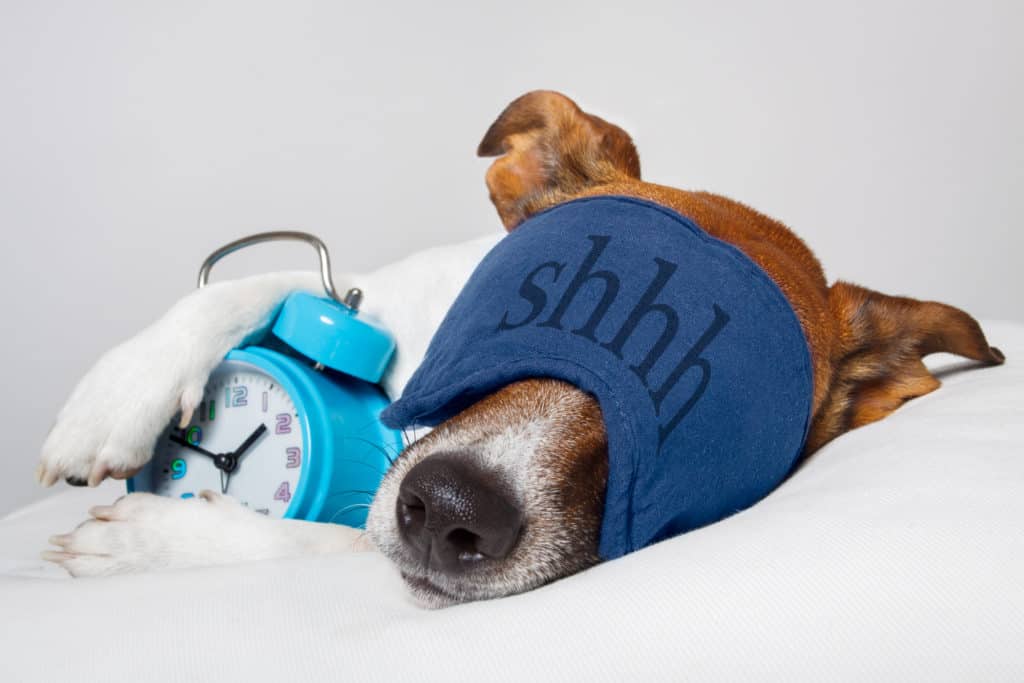
Protective Instincts
Dogs are naturally protective of their owners, and this protective instinct can extend to watching over them while they sleep. If a dog hears a noise or senses a potential threat, they may check on their owner to ensure their safety.
This behavior is especially common in breeds like German Shepherds, who are known for their protective nature. Dogs with separation anxiety may also check on their owners to alleviate their anxiety and ensure they’re still there.
Curiosity and Attachment
Dogs are curious creatures and may check on their owners out of sheer curiosity. They may want to know what their owner is doing or if they’re missing out on anything.
Additionally, dogs may check on their owners because of their attachment to them. Dogs form strong bonds with their owners and may simply want to be near them, even while they’re sleeping.
In conclusion, there are several reasons why dogs check on their owners while they’re sleeping. Whether it’s due to a need for comfort and security, protective instincts, or curiosity and attachment, this behavior is a sign of a dog’s loyalty and affection towards their owner.
If you’re looking to discourage this behavior, establishing a routine and a consistent feeding schedule can help redirect your dog’s focus and energy.
Tips for Managing Your Dog’s Behavior at Night
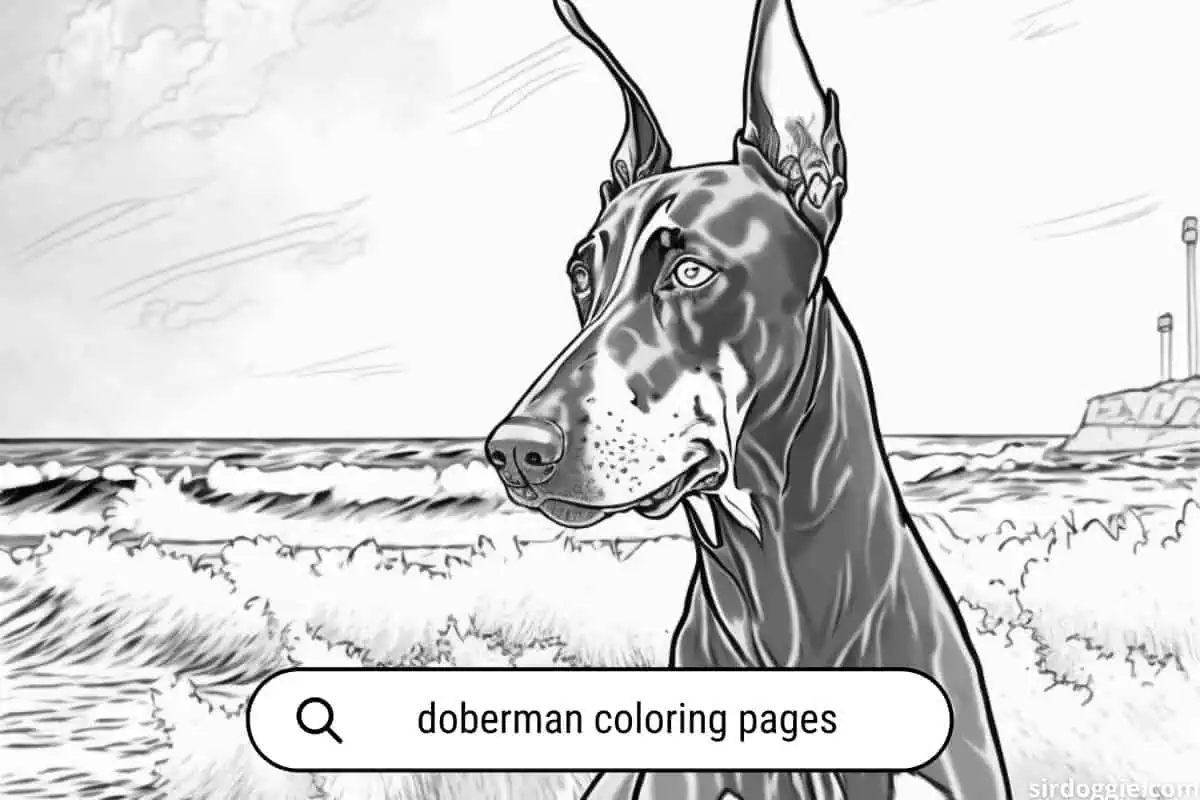
Establishing a Routine
One of the most important things you can do to manage your dog’s behavior at night is to establish a routine. Dogs are creatures of habit, and they thrive on predictability. Try to go to bed and wake up at the same time every day, and create a bedtime routine that you follow every night. This might include taking your dog for a walk, giving him a treat, and then settling down in your designated sleeping spot.
It’s also important to establish a routine around feeding and drinking. Try to feed your dog at the same time every day, and make sure he has access to water throughout the day. However, it’s a good idea to limit his water intake before bedtime to prevent him from needing to go outside in the middle of the night.
Creating a Comfortable Sleeping Environment
Your dog’s sleeping environment can have a big impact on his behavior at night. Make sure he has a comfortable spot to sleep, such as a cozy dog bed or a crate with a soft blanket. You might also consider investing in a white noise machine or a calming pheromone diffuser to help him relax.
It’s also important to make sure the room is dark and quiet. Cover any windows or use blackout curtains to prevent outside light from coming in, and consider using earplugs or a white noise machine to block out any noise that might be keeping your dog awake.
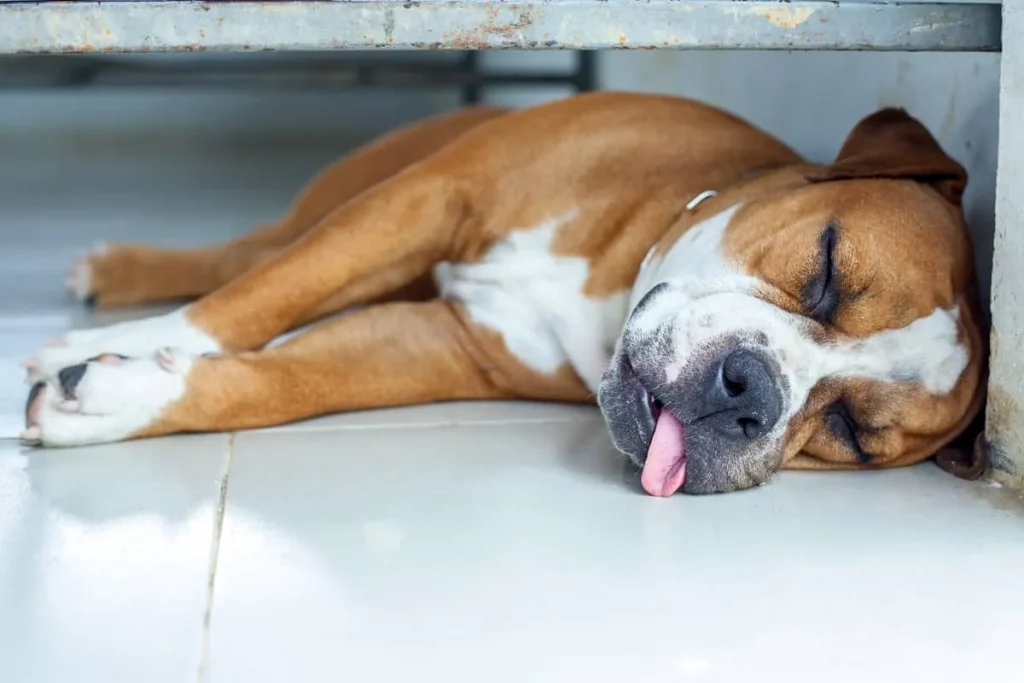
Training Your Dog to Sleep Alone
If your dog is used to sleeping in your bed or in the same room as you, it can be difficult to train him to sleep alone. However, it’s important to establish boundaries and help him learn to be comfortable sleeping on his own.
Start by gradually moving his bed farther away from yours, until he is sleeping in a separate room. You might also consider using a baby gate or a crate to create a designated sleeping area for him. Make sure he has plenty of toys and blankets to keep him company, and consider leaving a light on if he seems anxious in the dark.
When you’re training your dog to sleep alone, it’s important to be patient and consistent. Reward him with treats and praise when he stays in his designated sleeping area, and avoid giving in to his whining or barking. With time and patience, your dog will learn to be comfortable sleeping on his own.
Conclusion
While it may seem strange that dogs check on their owners while they sleep, there are actually many reasons why they do so. From wanting attention to ensuring their owner’s safety, dogs have a variety of motivations for their behavior.
By understanding why dogs check on their owners while they sleep, pet owners can better meet their pets’ needs and build stronger bonds with their furry friends.

Family Dog Expert Author
Hi there! I’m Stuart, a devoted dog lover and family dog expert with over a decade of experience working with our furry companions. My passion for dogs drives me to share my knowledge and expertise, helping families build strong, loving bonds with their four-legged friends. When I’m not writing for SirDoggie, you’ll find me hiking, playing with my beautiful dog, or studying music.